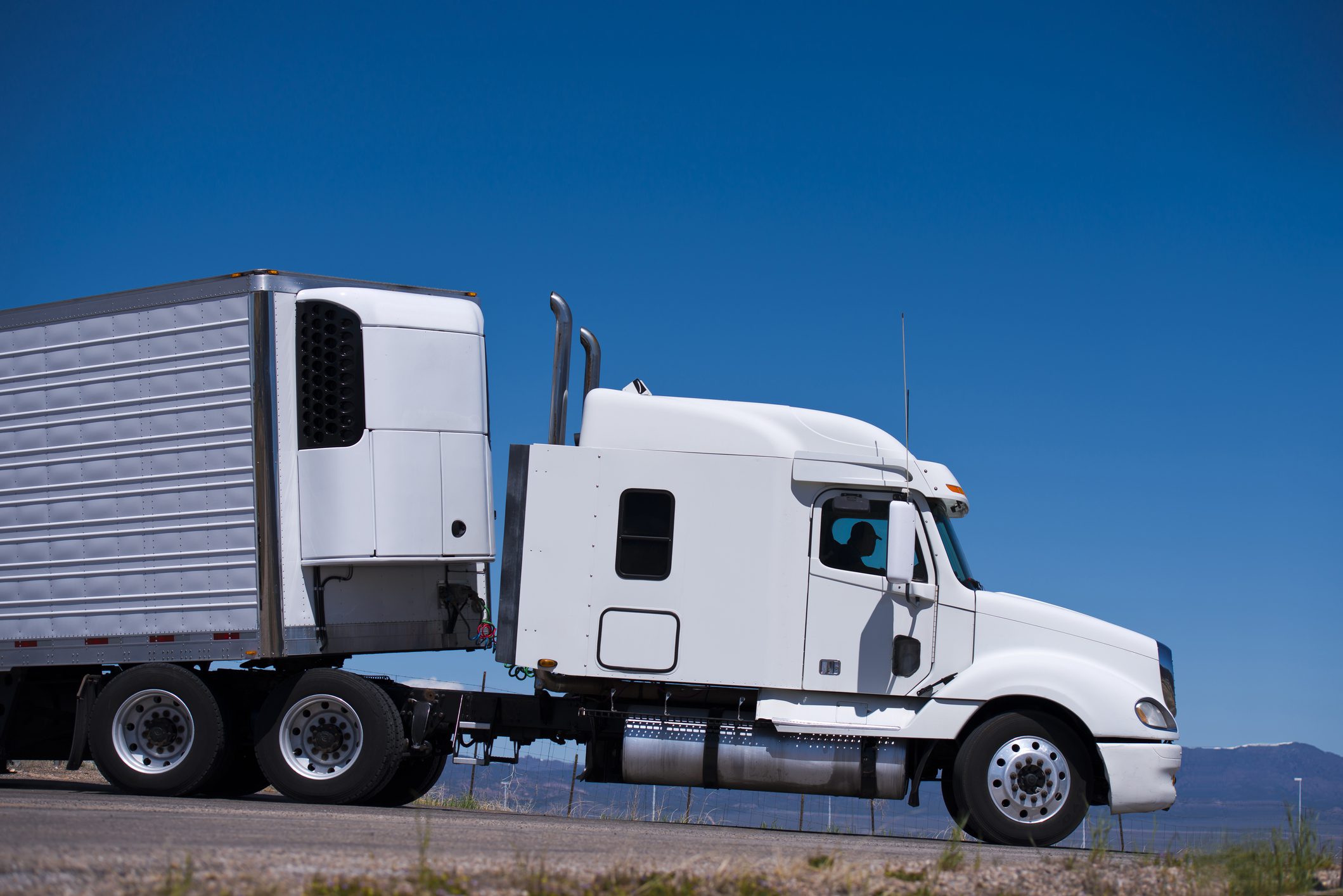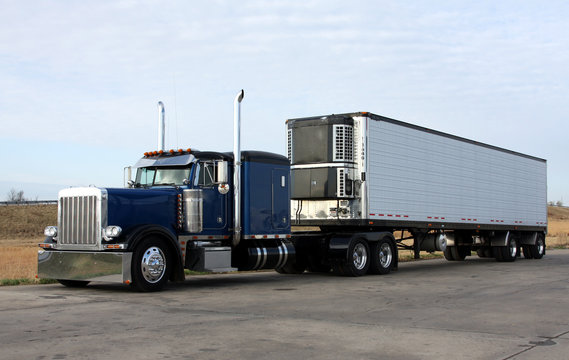Top Developments in Transport Refrigeration: Enhancing Performance and Security
The landscape of transport refrigeration is undergoing substantial change, driven by developments targeted at improving both efficiency and safety and security. Secret developments such as clever temperature level monitoring systems, environmentally friendly cooling agents, and automated route optimization are critical in addressing the market's challenges. These modern technologies not only make certain the stability of temperature-sensitive goods however also add to sustainability efforts. As these innovations proceed to develop, it is necessary to discover their implications on functional practices and governing compliance, motivating a closer assessment of how they improve the future of transport refrigeration.
Smart Temperature Checking Systems
In the world of transportation refrigeration, wise temperature level surveillance systems have arised as a critical innovation for making sure the integrity of temperature-sensitive products. These advanced systems take advantage of Internet of Things (IoT) technology to offer real-time data on temperature changes, allowing operators to keep optimum conditions throughout the supply chain. By constantly tracking the temperature of refrigerated containers and automobiles, business can swiftly recognize variances that may compromise item quality.

Additionally, smart surveillance systems typically incorporate automated informs and notifications, permitting stakeholders to react without delay to any prospective issues. This proactive approach not only lessens the threat of perishing however also boosts conformity with regulatory standards controling food safety and pharmaceutical transport.
The assimilation of information analytics within these systems likewise promotes predictive upkeep, helping operators to predict potential equipment failures prior to they take place. This ability minimizes downtime and maximizes operational performance, eventually leading to set you back financial savings.
Eco-Friendly Refrigerants
Smart temperature level tracking systems play an essential role in preserving product top quality, however the efficiency of transport refrigeration likewise hinges on the selection of cooling agents used. In contrast, emerging alternatives like hydrocarbon-based refrigerants and hydrofluoroolefins (HFOs) existing lower GWP options, using both performance and sustainability.
These environmentally friendly refrigerants not only reduce environmental impact but also line up with global guidelines focused on phasing out hazardous materials. Their fostering can result in enhanced power effectiveness, ultimately decreasing operating costs for transportation refrigeration systems. The usage of natural refrigerants, such as ammonia and carbon dioxide, has actually gotten traction due to their exceptional thermodynamic properties and reduced environmental footprint.
Buying green cooling agents is not merely a regulative compliance step; it stands for a tactical decision that enhances brand reputation and fosters customer loyalty. refrigerated transportation thermo king. By focusing on sustainable practices, business can add to a greener future while making sure the stability of transported items
Advanced Insulation Materials
Using innovative insulation products is critical for optimizing transport refrigeration systems, as they significantly improve energy efficiency and maintain regular temperature level control. Typical insulation approaches frequently fall brief in avoiding thermal transfer, bring about increased energy consumption and rising and fall temperatures within cooled compartments.
Emerging products such as vacuum cleaner insulated panels (VIPs) and aerogels supply premium thermal resistance, allowing for thinner accounts without compromising efficiency. VIPs, as an example, use a vacuum layer to decrease convective and conductive warmth transfer, making them suitable for space-constrained applications. Aerogels, known for their lightweight and permeable framework, supply phenomenal insulation while significantly lowering overall system weight.
Moreover, integrating stage change products (PCMs) into insulation systems can better support temperature levels during transit. These products soak up and release thermal energy, efficiently buffering versus exterior temperature level variations.
The combination of these sophisticated insulation materials not only lowers important source the functional costs connected with power intake however also expands the life span of temperature-sensitive goods. As the transportation refrigeration sector proceeds to progress, the adoption of ingenious insulation innovations will certainly be essential in boosting both efficiency and security in refrigerated transportation.
Automated Route Optimization
The performance of transport refrigeration systems is substantially enhanced through automated route optimization, which leverages real-time data and advanced formulas to figure out one of the most reliable courses for shipment. By assessing numerous factors such as traffic patterns, weather condition conditions, and delivery home windows, these systems can dramatically decrease travel time and gas usage.
Automated course optimization minimizes human error and subjective decision-making, which can lead to ineffectiveness. This innovation allows fleet managers to assign resources better, making sure that chilled goods preserve their called for temperature throughout the trip. By maximizing routes, business can additionally enhance customer contentment with prompt distributions.
Furthermore, automated systems can adjust to unforeseen situations, such as roadway closures or unexpected website traffic spikes, permitting for vibrant rerouting. This flexibility not click to read only shields the stability of temperature-sensitive items but likewise adds to general functional efficiency.
Carrying out automated route optimization can lead to significant cost savings while lowering the carbon footprint related to transport. As companies significantly focus on sustainability, this development attracts attention as a vital component in modern transportation refrigeration, straightening operational goals with environmental obligation. Inevitably, automated path optimization represents a considerable innovation in the quest for efficiency and security in transportation refrigeration.

Real-Time Data Analytics
Automated course optimization dramatically take advantage of the integration of real-time information analytics, which supplies vital insights into the efficiency of transportation refrigeration systems. By using real-time data, transportation operators can keep track of temperature level variations and devices performance, ensuring that subject to spoiling products are kept within called for specifications throughout transportation. This positive approach not just enhances the quality of the transferred items but additionally minimizes the danger of spoilage and loss.

Along with improving effectiveness, real-time analytics improves safety by making certain conformity with regulative requirements for temperature control. This not only protects public health yet additionally strengthens a business's track record - reefer trucks thermo king. As the transportation refrigeration sector progresses, the integration of real-time data analytics arises as a foundation for driving innovation, sustainability, and functional excellence
Final Thought
To conclude, the innovations in transport refrigeration dramatically improve both performance and safety within the sector. Smart temperature tracking systems and real-time information analytics offer crucial oversight, while eco-friendly refrigerants and progressed insulation materials add to sustainability and power efficiency. Additionally, automated route optimization algorithms not just reduce traveling time yet likewise minimize environmental influence. Collectively, these advancements stand for an important development in transport refrigeration, making sure compliance with governing criteria and promoting a greener future.
The landscape of transportation refrigeration is undertaking substantial makeover, driven by technologies intended at boosting both performance and safety and security.Smart temperature level tracking systems play a crucial function in preserving product quality, but the effectiveness of transportation refrigeration additionally pivots on the option of refrigerants used. Their adoption can lead to enhanced power performance, eventually minimizing operating expenses for transport refrigeration systems. Inevitably, automated course optimization stands for a considerable improvement in the mission for efficiency and safety in transport refrigeration.
In verdict, the innovations in transport refrigeration considerably enhance both performance and security within the industry.
Comments on “Refrigerated Transportation Thermo King: Keeping Goods Fresh in Transit”